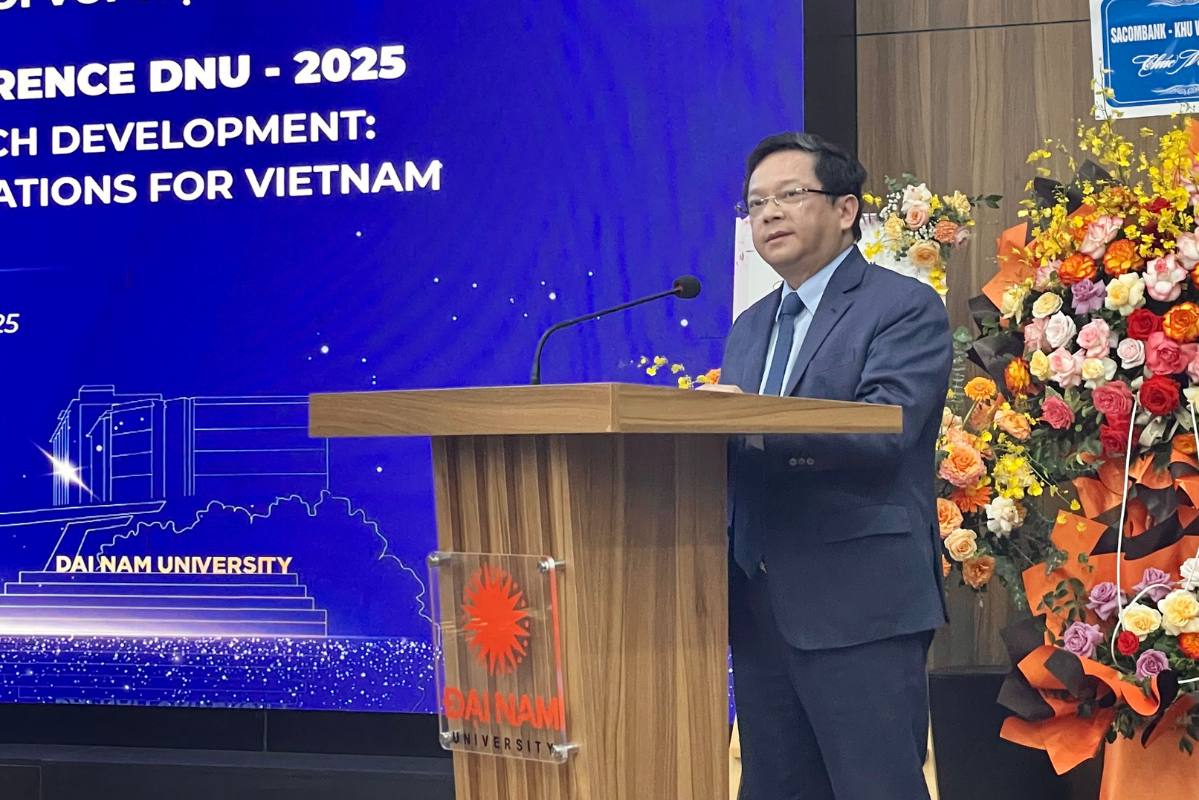On the afternoon of August 20, the 2025 International Scientific Conference with the theme: "State management for Fintech development: International experience and significance for Vietnam" took place at Dai Nam University. This is an event following the success of the two seminars in 2023 and 2024, attracting the participation of dozens of domestic and foreign experts, scholars, and managers.
Speaking at the event, Mr. Nguyen Duc Hien - Deputy Head of the Central Policy and Strategy Commission hoped that the Workshop would be a valuable opportunity to listen to international lessons in expanding the scope of Fintech application. Therefore, testing mechanisms based on blockchain, cryptography, and asset management need to be separated but ensure safety. Along with that, the event is an opportunity to look at the approach to Fintech when relying on product types or based on needs and focusing on risk prevention mechanisms, etc.

Taiwanese (China) experts warn of the risk of cryptocurrency fraud
In her speech "Detecting and governing cryptocurrency fraud: AI Framework and Taiwan's regulations", Ms. Lindy Tsai - Member of the Cyber Security Department, Ministry of Justice's Investigation Department informed: "Since 2020, Taiwan (China) has recorded more than 90,000 cases of fraud each year, with a daily damage forecast of up to 400 million yuan in 2025. cryptocurrency investment fraud has emerged as a high-risk method, especially the use of USDT to transfer money."
Faced with this alarming situation, Ms. Lindy Tsai shared about the 165 anti-fraud platform established by the Taiwan National Police Agency (China) - a platform that provides many anti-fraud features and real-time information.
"Everyone can access this service by registering online with basic personal information. The platform helps people and reduces the risk of becoming victims, while providing quick support through online reporting" - Ms. Lindy Tsai said.
Major barriers preventing Fintech development
Sharing at the Workshop, Dr. Luong Thi Thu Hang - Institute of Banking and Finance - National Economics University emphasized that sustainable development in the financial sector is no longer a choice but a prerequisite, an irreversible trend.
Pointing out the barriers to preventing sustainable financial development, Dr. Luong Thi Thu Hang mentioned 5 major limitations, including:
First, limitations in the legal framework. Currently, the financial technology (Fintech) sector does not have a unified legal corridor. Related regulations are still scattered in many documents such as the Law on Credit Institutions, the Law on Electronic Transactions... causing overlap, legal loopholes and risks for both businesses and managers. This makes it difficult for Fintech companies to apply for a license, comply with regulations on money laundering prevention and verification of customer identification; compliance costs increase, while investors and users lack confidence in the market.
Second, cybersecurity risks and data security. According to the Department of Cyber Security and High-Tech Crime Prevention (Ministry of Public Security), in 2024, the number of information security incidents in Vietnam will increase by 60% compared to 2023. This is a big challenge for Fintech's sustainable development.
Third, lack of investment capital. Fintech startups face many difficulties in mobilizing capital and material resources to maintain operations.
Fourth, limitations in product innovation. Lack of capital makes it difficult for Fintech businesses to invest in upgrading technology and developing new products, while it is difficult to maintain the quality of existing services, reducing user experience.
Fifth, digital gaps and inequality in access to financial technologies. In rural areas, although the rate of people using the Internet is increasing, the quality of transmission is still poor. Along with that, the education level, digital technology access level and financial capacity of people in remote areas are still much lower than urban areas, creating a clear digital gap.
At the opening discussion session, Lawyer Truong Thanh Duc - Chairman of the Board of Members of shareholders of shareholders of shareholders of shareholders of the Vietnam International Arbitration Center said that the biggest challenge for the Vietnamese Fintech market is the practical aspect when legal issues are quite fast but quite slow. Fintech appeared in Vietnam early, developing rapidly such as: peer-to-peer lending, digital assets, ... but slow in legal policies.











